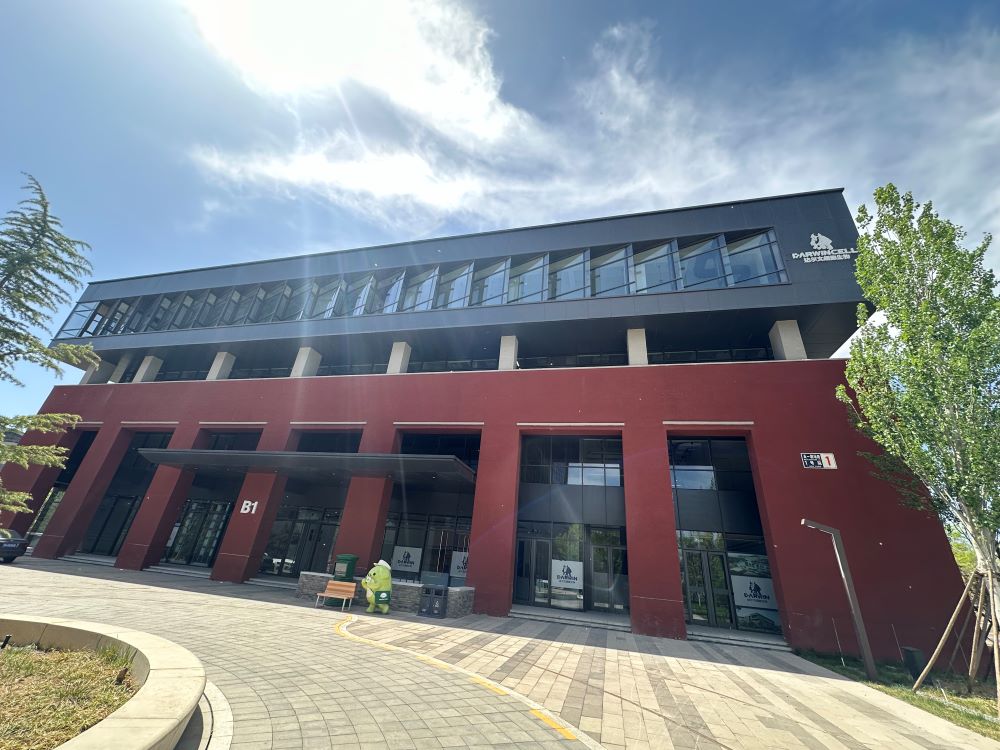DEW003, an innovative biologic agent developed by Darwin Beginnings, is an innovative protein nanoparticle polymer that reduces the abnormal deposition of proteins such as TDP-43, Aβ, and pTau in brain tissue, thereby reducing neurotoxicity, neuroinflammation, endoplasmic reticulum stress, and mitochondrial damage, as well as enhancing glial cell trophic and regulatory effects on neurons. It also enhances the trophic and regulatory effects of glial cells on neurons. It restores homeostasis in the nervous system, prevents neuronal death, and promotes axonal transit, growth and synapse formation.
The Department of Neurology at Yuquan Hospital of Tsinghua University (Tsinghua University Hospital for Integrative Medicine) is conducting a clinical trial of alitretinoin injection for the treatment of mild to moderate Alzheimer's disease. The study has been approved by the Medical Ethics Committee of Yuquan Hospital of Tsinghua University (Tsinghua University Hospital of Integrative Medicine and Western Medicine), China Clinical Registry No. ChiCTR2400082310, and is led by Dr. Qiao Liyan. A total of 10 subjects were enrolled, who were required to meet the diagnostic criteria for Alzheimer's disease by the National Institute on Aging and the Alzheimer's Disease Association (NIA-AA) in the United States and to have a stable and reliable caregiver to participate in the whole study process. The conduct of this study is of great significance, marking Alitol as the first biologic agent in the field of protein polymers in Alzheimer's disease, filling a gap in the field. The effect of the basic research gives confidence to the clinical study, and hopefully it will bring more hope to the patients, and we will continue to carry out research on drug optimization.
Profile of Qiao Liyan: Chief Physician, Professor and Graduate Supervisor of Tsinghua University, Postdoctoral Fellow in Neuropathology at the University of Anabama, USA. He is currently the director of the Department of Neurology at Yuquan Hospital of Tsinghua University (Tsinghua University Hospital of Integrative Medicine and Western Medicine). She has been engaged in clinical diagnosis and treatment of neurology for more than 20 years, and has accumulated rich experience in the diagnosis and treatment of central nervous system degenerative diseases (cognitive disorders, Alzheimer's disease), autoimmune diseases of the nervous system (myasthenia gravis, multiple sclerosis), neurological infections, and cerebrovascular diseases, etc. She is also the director of the Department of Neurology at Yuchuan Hospital of Tsinghua University.
Academic tenure:He is the chairman of the Neurocognitive Specialty Committee of the Alzheimer's Disease Prevention and Control Society, the vice chairman of the Cognitive Disorder Whole Management Committee of the Beijing Neurodegenerative Disease Committee, a member of the Neurological Society of the Beijing Medical Association, a member of the Neurology Committee of the Beijing Physicians' Association, and the Integrative Medicine Committee of the Beijing Society of Neurology. He serves as an associate editor of the Journal of Alzheimer's Disease and Related Disorders.
Publication of academic papers and monographs: Has published more than 60 papers in domestic and international journals, more than 30 papers as first and corresponding author. He has co-edited one Chinese book and two English books. She has undertaken 2 projects of Capital Medical Development Fund, 1 project of Ministry of Education's Start-up Fund for Overseas Returned Scholars, 1 project each of National 863 and Beijing Science and Technology Commission, and participated in many projects of National Natural Science Foundation of China. Awards and Honors; Third Prize of Beijing Scientific Progress; Third Prize of the Ministry of Logistics of the Chinese People's Liberation Army; Most Beautiful Doctor Award for Myasthenia Gravis in 2016; Sixth Beijing Outstanding Physician Award in 2018; People's Good Doctor in 2018.

senile dementia: It is a progressive neurodegenerative disease that primarily affects the brain's memory, thinking and behavioral functions. It is the most common form of Alzheimer's disease and usually occurs in people over the age of 65. The main features of the disease are the death of neurons and atrophy of brain tissue, leading to memory loss, cognitive decline and behavioral changes. The exact cause of Alzheimer's disease is unknown, but genetic factors, abnormal protein accumulation and neurotransmitter imbalances may be involved in its pathogenesis. There is no cure for Alzheimer's disease, but pharmacologic and non-pharmacologic treatments can help relieve symptoms and improve patients' quality of life.








